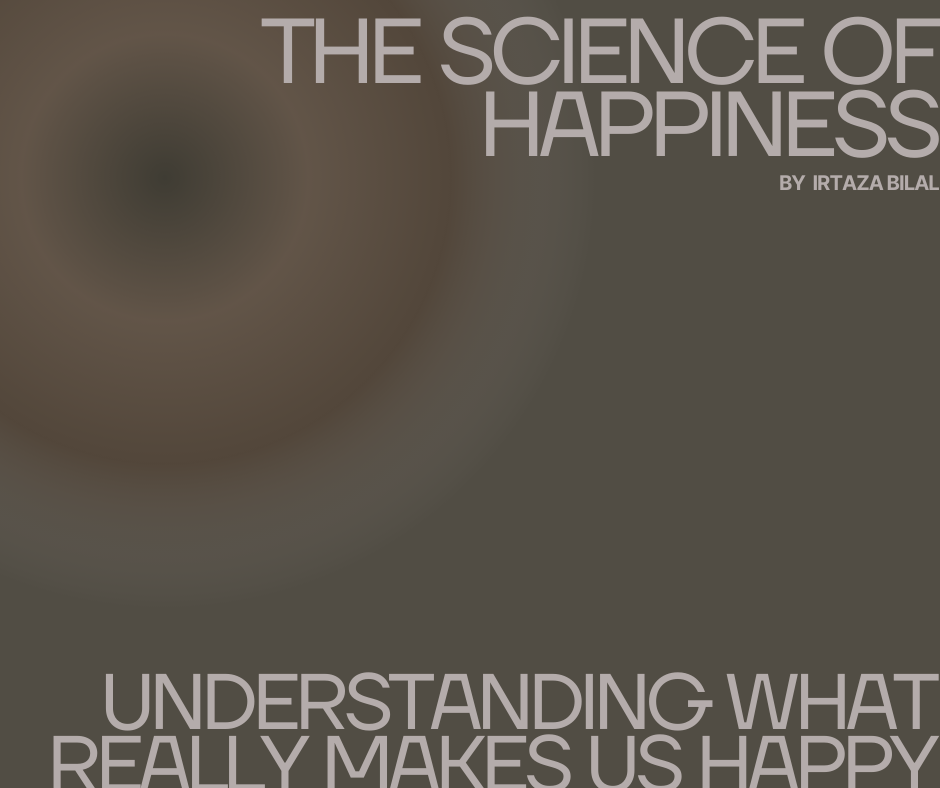Happiness is an elusive concept that has fascinated philosophers, scientists, and everyday individuals for centuries. What truly makes us happy? Is it material possessions, social connections, or something deeper within ourselves? In this blog post, we will delve into the science of happiness to uncover the factors that contribute to our well-being and explore practical ways to cultivate a happier and more fulfilling life.
The Psychology of Happiness:
Happiness is not just a fleeting emotion; it is a complex psychological state that involves positive emotions, life satisfaction, and a sense of purpose. We’ll explore the psychology behind happiness, including the role of genetics, personality traits, and life circumstances in determining our overall happiness levels.
The Hedonic Treadmill:
Have you ever noticed that the excitement of a new purchase or achievement fades away relatively quickly? This phenomenon is known as the hedonic treadmill, where we adapt to positive or negative events and return to a relatively stable level of happiness. Understanding the hedonic treadmill can help us avoid the pursuit of material possessions as the sole source of happiness.
The Impact of Social Connections:
Humans are inherently social beings, and our relationships play a crucial role in our well-being. We’ll delve into the research on the impact of social connections on happiness, the importance of quality over quantity, and the benefits of nurturing meaningful relationships.
Gratitude and Mindfulness:
Practicing gratitude and mindfulness are powerful tools for increasing happiness. We’ll explore the science behind these practices, how they reshape our brains, and simple techniques to incorporate gratitude and mindfulness into our daily lives.
The Pursuit of Meaning and Purpose:
Beyond momentary pleasures, finding meaning and purpose in life is a key factor in long-term happiness. We’ll discuss the importance of aligning our actions with our values, setting meaningful goals, and contributing to something larger than ourselves.
The Role of Acts of Kindness:
Engaging in acts of kindness not only benefits others but also enhances our own happiness. We’ll explore the “helper’s high” and the positive impact of altruism on our well-being.
Cultivating Resilience:
Life is full of challenges, and building resilience is essential to navigate through tough times while maintaining overall happiness. We’ll learn about the science of resilience and strategies to develop a more resilient mindset.
Finding Flow in Activities:
When we’re deeply engaged in activities that challenge our skills, we often experience a state of flow—a state of complete absorption and satisfaction. We’ll discuss how to find flow in our daily lives and the happiness benefits it brings.
Money and Happiness:
While money can provide security and some level of comfort, its impact on long-term happiness is more nuanced. We’ll explore the relationship between money and happiness, including the concept of “enough,” and how to spend money in ways that foster happiness.
Conclusion: Happiness is a multifaceted journey, influenced by various internal and external factors. By understanding the science of happiness and applying evidence-based strategies, we can foster a more fulfilling and joyful life. Embracing gratitude, nurturing relationships, finding purpose, and seeking experiences that bring us genuine joy are key steps on this path to lasting happiness. So, let’s embark on this journey together and unlock the secrets to a happier, more meaningful life.

